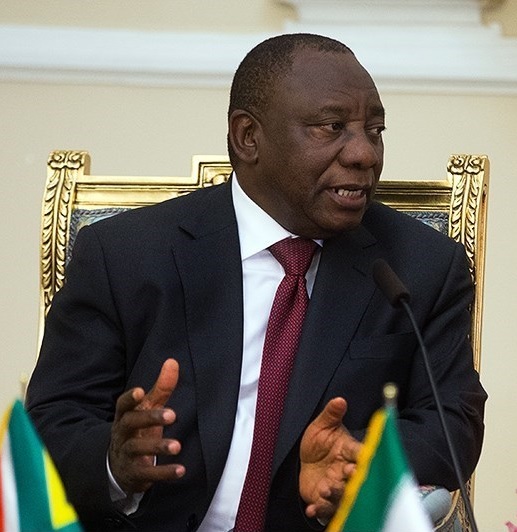South African President Cyril Ramaphosa is in a fix barely a year before the 2024 general elections. He is struggling to balance the interests of his party the African National Congress and the government, particularly after his slate got a shellacking at the December party elective congress.
Ramaphosa’s deputy David Mabuza lost his position at the congress with Paul Mashatile coming in. And in line with the ANC tradition, Ramaphosa has to appoint Mashatile as his deputy. More than a month after the resignation of Mabuza, Ramaphosa has failed to act.
In his State of the Nation Address last month, Ramaphosa announced Mabuza’s resignation and the creation of a new ministerial post in the Presidency in charge of electricity.
These new changes are yet to be implemented one month later as speculation is running rife that Ramaphosa is not certain about his own future, particularly with rising cases of corruption and electricity rationing in South Africa.
Many analysts are also expecting that Ramaphosa would use the cabinet reshuffle to deal with errant ANC MPs who voted for his impeachment in December, among them, ministers for Cooperative Governance Nkosazana Dlamini-Zuma and Tourism Lindiwe Sisulu.
The vote by the ministers was open defiance of the ANC stance that all party members should vote against the motion.
New ANC secretary-general Fikile Mbalula was cryptic in an interview with the Daily Maverick of South Africa on what Ramaphosa would do. Mbalula said, “All these things should be wrapped up within the month of February … the president is applying his mind on a whole lot of issues.”
However, Ramaphosa seems to have missed this deadline amid concerns that he is setting his ducks in a row to consolidate his shaky power in the ANC.
South African political analysts say Ramaphosa is becoming sceptical of ANC cadres and is bloating the presidency with technocrats to drive his political and economic agendas.
They argue that the position of Electricity minister to be housed in the presidency is a clear sign that he does not believe that from among his current cabinet anyone can resuscitate power generation in the short term with general election looming next year.
Ramaphosa’s position is being further weakened by pollsters who are saying the ANC for the first time since independence in 1994 is likely to garner less than 50% of the national vote, thus creating a potential for a first coalition government arrangement.
Things have not been made easier by ANC losing council elections in metropolitan centres rendering it a rural party. Moreover, this position has been worsened by factionalism within the ANC as the Radical Economic Transformation faction nominally led by former president Jacob Zuma is not making life easier.
This faction has among others Dlamini-Zuma, Zweli Mkhize and Sisulu – all who have in the past ANC elective conferences challenged Ramaphosa for the presidency.
The radical opposition Economic Freedom Fighters (EFF) is planning a national shutdown on March 20, which they want Ramaphosa to step down for corruption and failure to deal with electricity shortages. It is not clear how many from other opposition parties and factions of the ANC would join this rallying call.
The long and short of it is Ramaphosa is with each passing day becoming a lame-duck president and may have the fate of both Thabo Mbeki and Jacob Zuma before him of being ousted before the end of his term. It further remains to be seen if the reshuffle of his cabinet will save him till the general elections in April 2024.
Cover Image: Presidency South Africa/File



